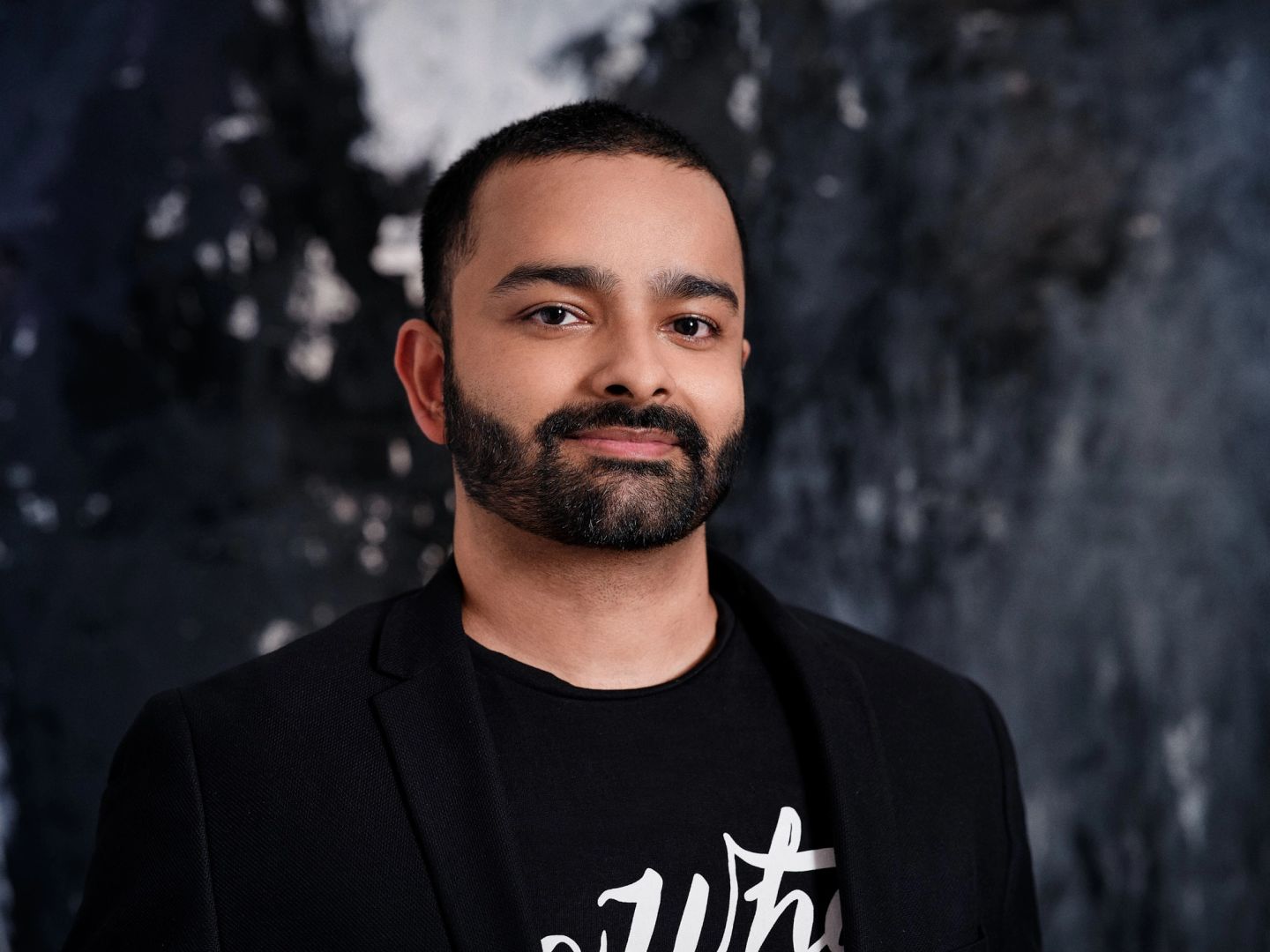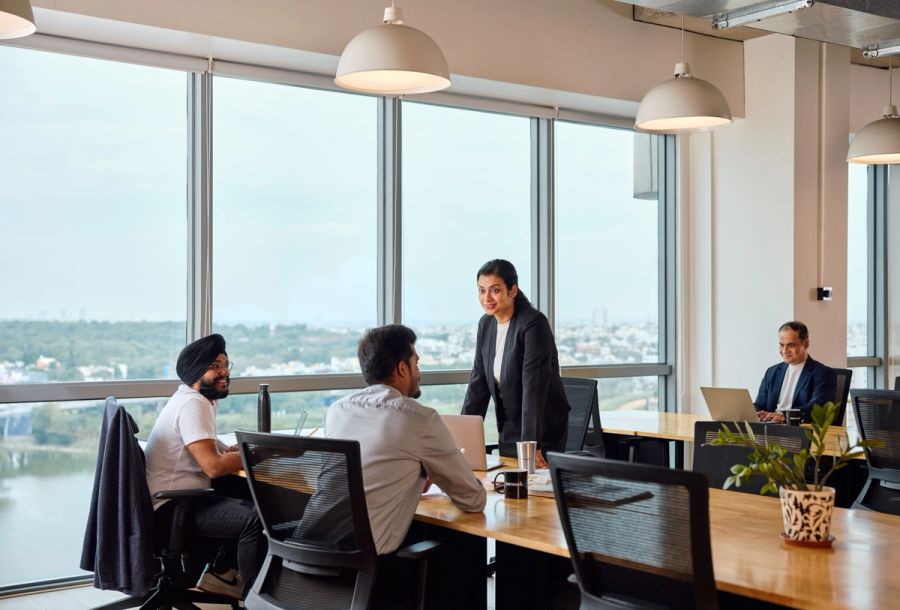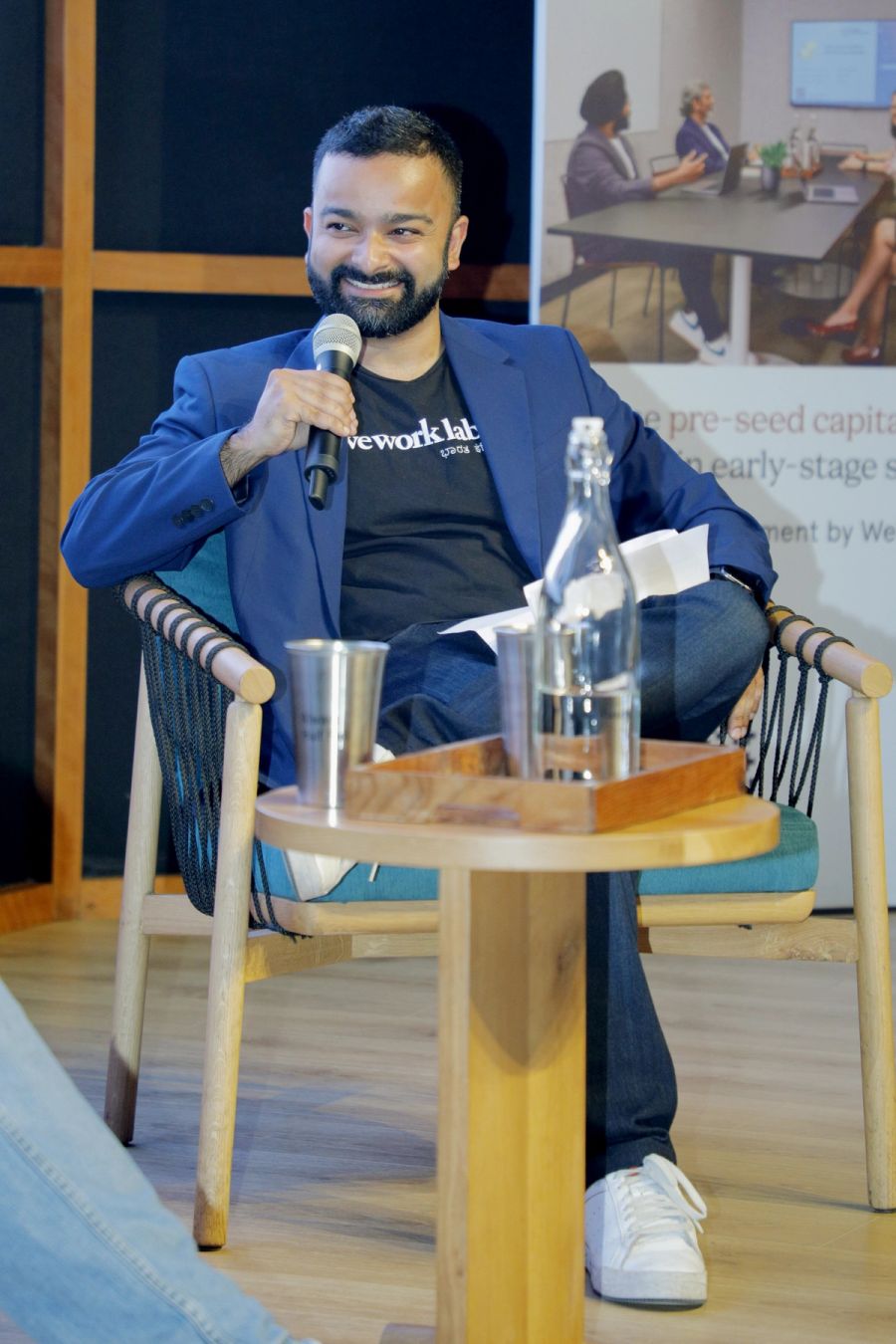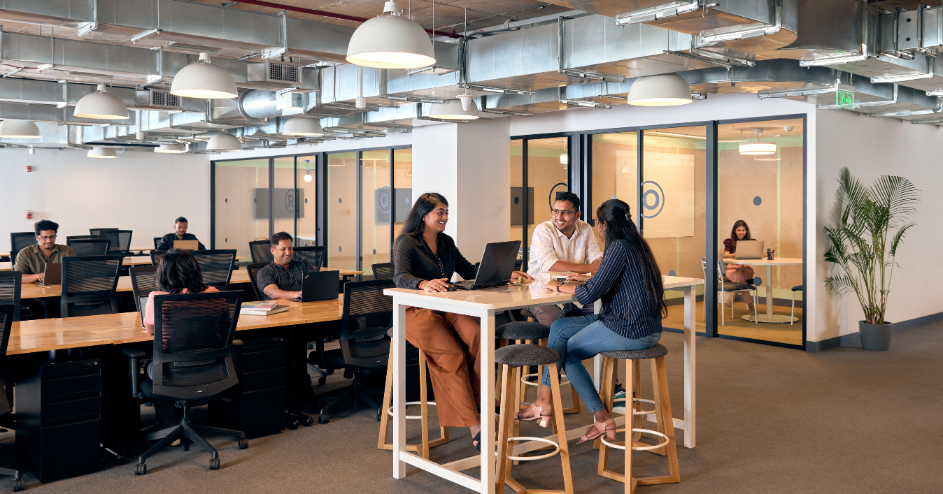WEWORK LABS
Decoding the Startup Ecosystem, Founder Mindset, and Investment Playbooks with Arvind Radhakrishnan

Explore insights on founder mentality, investment strategies, and the evolving startup ecosystem with Arvind Radhakrishnan, Head of WeWork Labs. Learn about sustainable business models, team resilience, and key industry trends.
As he sits before me, Arvind Radhakrishnan carries the weight of not just WeWork Labs, but also the baggage of having spent over a decade in the startup ecosystem. Since starting WeWork Labs in 2018, the investments and acceleration arm of WeWork India has been actively working towards connecting different parts of the ecosystem.
“Everyday it feels like I am learning to ski uphill,” he says, letting out a breathy laugh. An apt description, given how much startups and Arvind both have evolved over the last decade and a half.
Within the startup ecosystem we’ve had cycles of great optimism, and equally, an arduous funding winter that was once upon us in India. We are slowly shrugging off the winter now, given that startups had a record month in August, having raised $1.6 billion.
Equally, perspectives have shifted. Investors who had blind faith are now acting more cautiously. For instance, the sky-high valuations we witnessed in 2022 are seemingly in the past now. Interestingly, this year is shaping up to be one for limited partners (LPs), according to a report by The Captable. LPs are now greatly investing or co-investing directly in startups, says the report.
This point aside, there are some things that have stayed the same.
Building a investing playbook
Some things never go out of style in the world of venture capital. Sustainable business models still rank pretty high as a metric for most venture capitalists, regardless of stage and size of bets.
A survey among top venture capitalists by Harvard Business Review found that VC’s favoured a sustainable business model above valuation. Ask Arvind and he’ll tell you that clarity on the current business model is critical to a business. “It’s important to know who you are targeting with your solution, how big that market is and how accessible and sustainable those profit pools are,” he tells me.

Beyond the business models, teams that are resilient to changing trends, are also critical to a business.
(Side note: We also discussed a similar topic with Pranav Pai of 3one4 Capital and Stanford Seed in April. You can catch us at similar events by subscribing to our calendar here.)
The founder mentality
Most investors agree that having the right founder mentality is key to ensuring success in the long-term. One study by Bain and Co, found that one in nine companies that achieved a decade or more of sustained, profitable growth, had preserved—or restored—their Founder’s Mentality.
To Arvind, that definition of success through the founder mentality essentially remains the same no matter what. “You have to be obsessed with the problem that you are trying to solve… that sort of mindset makes it easier for you to land on a solution,” he says.

Recalling his time building his own startup–21Dojo–Arvind says the fundamental thought that drove him to build his own company was to think about what makes you the angriest. “It’s more likely that you’ll start obsessing over something if it’s a problem that intensely bothers you! I think that is the easiest way to ensure that you will work towards finding the best solution, and build the hustle mindset to solve the problem holistically. You will find the team that resonates with that problem, and you will see the product come to life in a way that resonates meaningfully with you.”
That same Harvard Business Review survey from earlier, suggests that venture capitalists typically don’t attribute too much of a startups success to themselves, rather they do place a lot of value on the success of a founder.
Ultimately however, it’ll be a mix of a great team, a sustainable business model, and a little bit of luck that will establish billion dollar businesses.
Let’s take a moment to explore the themes of founder mentality and the startup ecosystem with Arvind Radhakrishnan. Edited excerpts from our conversation.
Akanksha: What’s an investment thesis you believe in and follow?
Arvind: I would rather bet on a fantastic team in a mediocre market than a mediocre team in a fantastic market, because a good team will know how to navigate the waves of a market. May not be the other way around.
Akanksha: What’s a sector you are excited about right now?
Arvind: I've been and I always will be excited by companies that have found the right product that addresses a large market that is sort of the no brainer here, so things like consumer, healthcare and financial services, etc. From a long-term perspective, anything that enables social mobility in the economy is very interesting to me. The advent of frontier tech (deep tech and deep science) and its effect on various industries and the wider economy is also very interesting.
Akanksha: How has the startup ecosystem changed since you first entered it nearly over a decade ago?
Arvind: The ecosystem is fundamentally different than it was 12 years ago in every way. It’s now at an inflection point where all those founders from back then are now starting their own funds. There's much more knowledge of the startup ecosystem by all stakeholders, which makes for a much more mature, thoughtful ecosystem as a whole.
Akanksha: What’s your outlook for WeWork Labs for the next five years?
Arvind: The line that will dictate what WeWork Labs does in the next few years is to be the hub for business creation. In that regard, we are becoming more innovation focused across the business spectrum. We want to be able to help ideas thrive, whether it's being explored by a freelancer or an enterprise. Within WeWork India we are going to see a lot more people within our community wanting to create businesses. We should be making it easy to do so by taking away as many barriers to scale as possible.
No matter where you are in your startup journey, we hope these insights help bring your vision and mission to the forefront. See you in the next WeWork Labs blog!
Related Blogs:

WEWORK LABS
With the Indian startup ecosystem gaining maturity, there are a number of things changing—startups are thinking more global in their ambitions, more companies are taking their companies to the market

WEWORK LABS
India may be home to unicorns and cutting-edge tech, but at its core, it's still a nation of farmers — with over 50% of the population dependent on agriculture.

